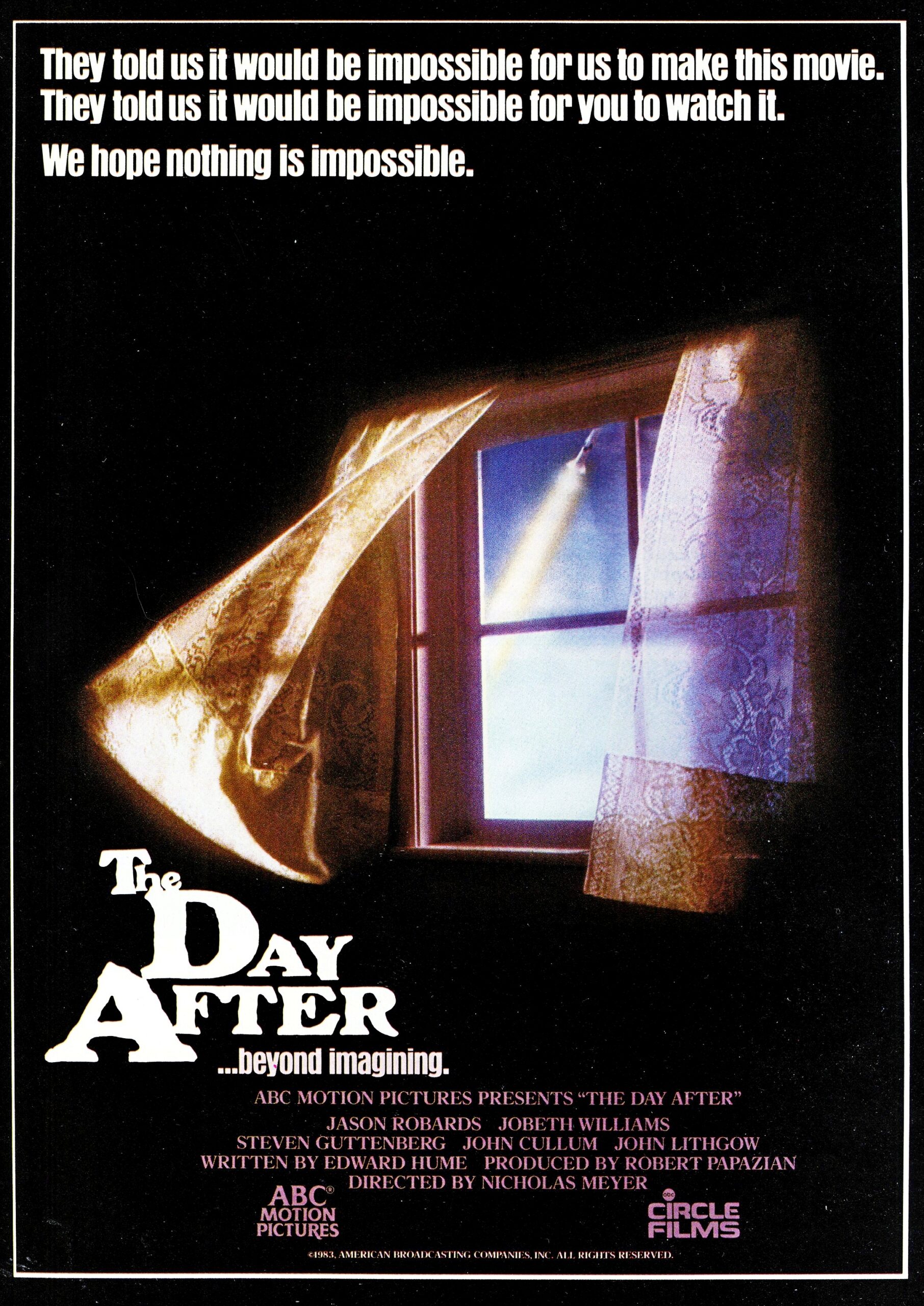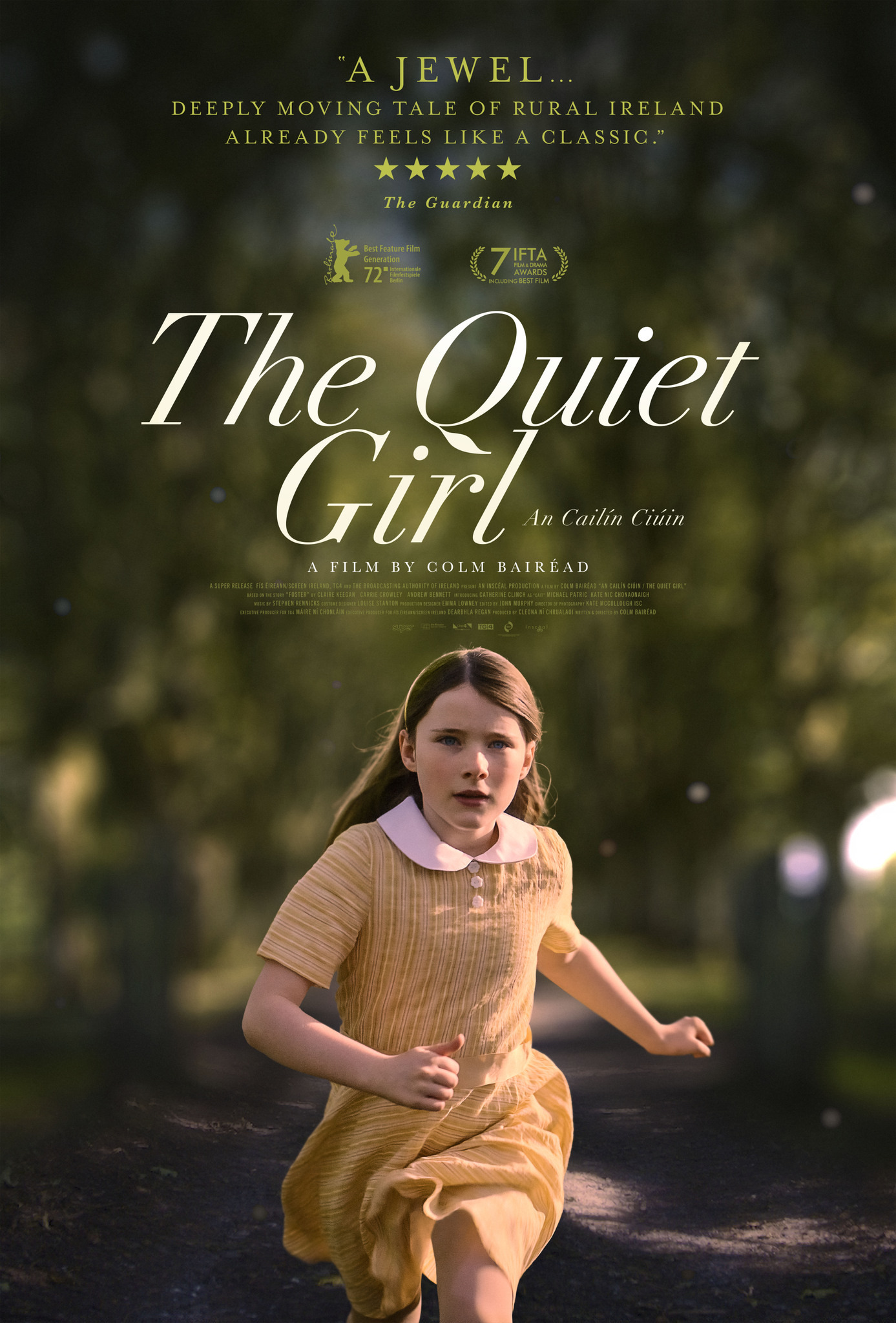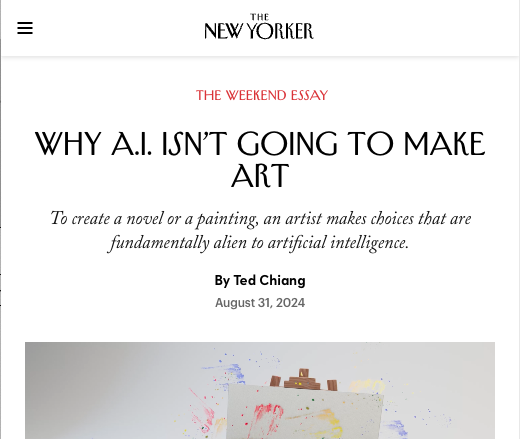The cultural impact of this was enormous, and it holds up pretty well today.
Annie Jacobsen’s excellent Nuclear War: A Scenario reminded me of this TV movie from the 1980s, and it’s on YouTube in full:
This starts slow and has a real After-School Special vibe to certain sections (especially the barbershop scene around the 39 minute mark), but it’s more watchable than later seasons of The Walking Dead. It does it’s clunky best to depict some of the things in the book too – Launch on Warning, and the effects of a high-altitude EMP for example.
It’s also hard to understand how much of an event this was when it aired. More than 60% of the available audience watched it, and it even affected public policy(!). From Wikipedia:
US President Ronald Reagan watched the film more than a month before its screening on Columbus Day, October 10, 1983. He wrote in his diary that the film was “very effective and left me greatly depressed” and that it changed his mind on the prevailing policy on a “nuclear war”. The film was also screened for the Joint Chiefs of Staff. A government advisor who attended the screening, a friend of Meyer, told him: “If you wanted to draw blood, you did it. Those guys sat there like they were turned to stone.” In 1987, Reagan and Soviet Premier Mikhail Gorbachev signed the Intermediate-Range Nuclear Forces Treaty, which resulted in the banning and reducing of their nuclear arsenal. In Reagan’s memoirs, he drew a direct line from the film to the signing.
This retrospective by The Hollywood Reporter is another good piece on it, with a pretty unsurprising bit of trivia:
Conservative groups went on the warpath against the network, claiming the movie was Soviet propaganda designed to undermine America’s nuclear deterrent (even though Hume’s script never identified who launched the strike against the U.S. or why). For another, the subject matter of atomic war was, predictably, radioactive to advertisers. They began pulling out in droves.
It’s unrelentingly grim, which you still don’t see much of in wide-release stuff, especially stuff that aired in primetime. It ends with a disclaimer that reads:
The catastrophic events you have just witnesses are, in all likelihood, less severe than the destruction that would actually occur in the event of a full nuclear strike against the United States.
It is hoped that the images of this film will inspire the nations of this earth, their peoples and leaders, to find the means to avert the fateful day.
In elementary school, my older sister did Duck and Cover drills, as our small town had several uranium mines (my dad worked in them) and was for a while considered the Uranium Capital of the World. I remember watching the movie when it aired, though I was very young.






